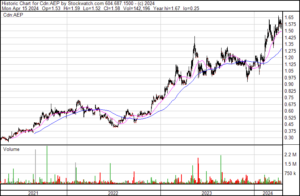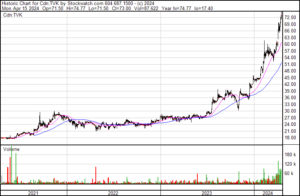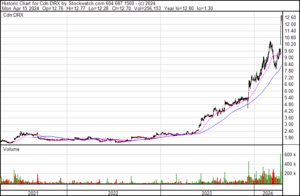The Succession Trade
Picture this. You own a successful small business that you’ve built over decades. It has solid financials, great potential, and you can’t see the demand going anywhere but higher. The challenge, however, is that you need to find a way to sell it to retire, and it looks like there are no potential buyers.
If this sounds familiar, you’re not alone. According to the federal government, more than 75% of small business owners plan to retire in the next decade. These entrepreneurs own the types of unassuming and “boring” businesses that we don’t often think about but rely on every day—from a range of services (repair shops, logistics, restaurants, retail stores) to small manufacturers and everything in-between.
Many of these business owners can’t simply give their businesses away to their children, and most of their children are in no position to buy (or just don’t want to). At the same time, selling to a competitor is either not a good deal, or not even an option.
It’s a succession challenge that will impact everyone in some way, as small businesses make up most of the economy.
If you are one of these small business owners, what do you do?
The Opportunity
The first thing is to look at the value of your business from a different perspective. If it’s not an asset that can be sold easily, perhaps it has value in a different structure.
The good news is that the investment community is also thinking along these lines. We have touched on this before, noting that we are facing a generational opportunity, where mom and pop business owners are selling to companies that have the cash and ability to buy these small business in bulk and listing them as a ticker on the TSX.
For instance, if you own Joe’s Cement Finishers, you may have a hard time selling your business to an individual in the current environment. However, a rollup company may be interested. Sound far-fetched? We recently talked to a company looking for investors to participate in its business, which, you guessed it, is a rollup for cement finishers.
Of course, rollups are just one way this could work. And as a fair warning, they are a great example of risk-reward, with many examples of how they don’t work. Valeant Pharmaceuticals was one of the best-known examples.
However, the overall strategy these companies are following is catching on, and we expect more and more attention to come this way.
Success Stories
We are seeing a growing list of companies gain success with a model that’s based, in some way, on buying up good businesses.
For instance, Atlas Engineered Products (AEP.V) has delivered excellent returns in the last couple years. They focus on acquiring, integrating, and upgrading well-established companies in Canada’s roof and floor truss, panels, and engineered wood products industry.

Another company with a similar approach is TerraVest Industries (TVK.T), a market leading manufacturer of home heating products, with the associated gas storage and transport vehicles and processing equipment. They have continued rolling up the industry and have seen incredible success, with a stock up over 100% in the last year—lifting the company out of the smallcap space with a $1 billion market cap.

For a slightly different approach, look at Decisive Dividend (DE.V), an acquisition-oriented company focused on opportunities in manufacturing. They have done very well in the last year, following a strategy of acquiring boring, but profitable, companies across multiple industries. While it’s a different approach than AEP or TVK, which focus on one industry, it has clearly worked, with a stock price up over 100% in the past year.
ADF Group (DRX.T) is another one, which we have mentioned recently. Their approach has served them well, with a share price soaring from $2 to $12 in the last year.

The list goes on, and the important thing to note is that the list is growing. The idea of grabbing small businesses and packaging them as an investment product is tempting for retail and institutional investors alike. It’s likely a reaction to the tech-dependent market we’ve seen for years, with an over-reliance on hype over substance, from the mega caps to the micros.
How does this work?
It may sound appealing, but how, from a business owner’s perspective, does this work? How do you properly extract years of toil and risk if there are no easy buyers in sight?
It remains to be seen exactly which way this goes. For instance, the industry rollup concept has been around for a while and will likely accelerate, as investors look to capture a large chunk of business. There will also be IPOs that look to take a single business and make it more efficient; for instance, through automation. And no doubt there will be other models as well.
Either way, the result could be similar. For instance, as the lucky small business owner who just got bought out, you’d likely be able to get 25-30% of your 100% stake in cash for taking the company public. You’d then get the remainder in shares. It’s a good deal; you can sell the shares over time instead of all at once. And the business owner benefits too, getting access to a deal they never would have had before.
The demand is there
No doubt the smallcap space is ready for a new opportunity like this. And we are seeing the demand for this—for good, profitable, boring companies—play out right now.
Take IBEX Technologies (IBT.V) We’ve been following this great company for a while, writing about them recently in reference on how to spot the makings of a 10-bagger. The company was recently bought out at $1.45, providing great return for investors who jumped in over the last couple years.
What a deal like this does is two-fold. It signals that there is a strong appetite for great smallcaps (profitable, growing). It also removes another good company from a small market, driving even more demand.
The result is more money looking for good ideas. That’s more demand ready to be sold on what is very much a generational opportunity. And we’re seeing more and more investment ideas looking for money, using this new model of buying out boring, profitable businesses.
What do you do? Watch this space
Whether you are a small business owner looking to solve your succession challenge, or an investor looking for a new investment angle, you are probably wondering how to get started.
Good question. The short answer is that there is no real financial system in place to properly do this succession trade.
The longer answer is to stay tuned . . .
We have our ear to the ground on the opportunities taking shape, and we are planning on hosting a conference for private companies interested in this path in the coming months. It will be a great opportunity to explore an emerging investment theme, meet some great players, and have some fun as well.
We will share more details on this soon. In the meantime, happy investing.
